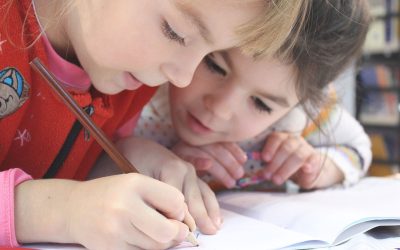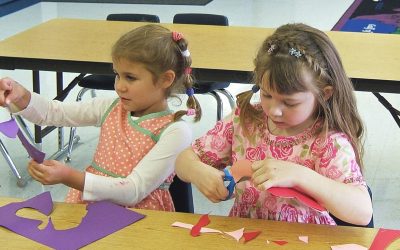Roots and routes: I’m an artist (architect, jockey, gymnast…) will my child be one, too?
Children learn from what they’re exposed to, and they develop skills based on what they enjoy doing, and what they’re encouraged to think about, attempt, and practice. Learning is a process that occurs over time, so it makes sense that when a child experiences a range of opportunities, has access to different resources, and is supported in pursuing their interests, they’ll have possibilities for exploration and growth—and, ultimately, self-directed learning.
“Each of us has a responsibility to give children what they need to follow their interests, affirm their strengths, and develop their capabilities.”
Realistically, not all children have the luxury of art supplies, building materials, a horse, or gymnastic equipment. Their parents may not be artists, architects, jockeys, or gymnasts (insert the pursuit or profession…). However, there are plenty of ways to help children extend their interests, whether by following in their parent’s footsteps or by choosing to veer off and take a completely different route altogether.
Here’s one story about encouragement:
Roberto was exceptionally strong in mathematical areas. His parents said he’d always enjoyed counting things, even as a baby.
“We had a mobile over his crib,” Roberto’s father explained, “with a string of brightly colored blocks on it. He’d move the blocks one at a time until he had the whole set on one side. Then he’d do the same thing, back to the other side. After we saw him do that a few times, we started counting with him. He’d laugh and do it again, and soon counting together became our nightly ritual, our family lullaby.”
“That’s right,” said his mother. “Later, we incorporated twists, adding or subtracting the blocks, or connecting the numbers to something Roberto could relate to, like fingers or toes, or stuffed animals.”
Her husband continued. “As Roberto got older, he started counting whatever he could find around the house. We’d make up number games with piles of things—crayons, Legos, and uncooked pasta—and before long, he was multiplying and dividing.”
“Then we created arithmetic booklets for him,” his mother said. “He was so intent on learning. His kindergarten teacher told us he was able to answer third-grade questions.”
The kind of shared playful experiences that Roberto’s parents provided fostered his intellectual development. They enjoyed seeing and supporting his understanding of numerical concepts, but they took care not to push him too hard or fast so that he could take pleasure in math activities and become more interested in them.
“The best activities are designed or adapted for children’s learning interests and levels of readiness.”
Roberto’s parents have mathematical leanings (his father is an electrical engineer, and his mother is an accountant), so they naturally saw his activities connecting to numbers, and creatively advanced that.
However, over time, they encouraged other interests as well, such as …








